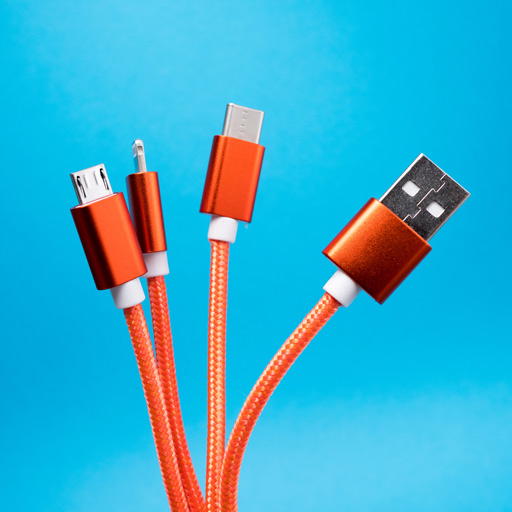
Shield your devices from the threat of Juice Jacking.
Public charging stations and untrusted USB ports place your devices at risk, allowing unscrupulous people or governments to embed malware directly into your mobile device via the charge port.

Shield your devices from the threat of Juice Jacking.
Public charging stations and untrusted USB ports place your devices at risk, allowing unscrupulous people or governments to embed malware directly into your mobile device via the charge port.
"Juice Jacking" is a type of cyberattack where public charging stations and USB ports can surreptitiously communicate with attached devices, giving the attacker all manner of control over the device. This can mean gaining access to data, copying cloud service account keys, mirroring screens, or installing malicious software that persists long after the initial infection.
It has been a known type of attack since 2011, and many devices today can still be compromised this way. Furthermore, would-be attackers don't need to set up a fake charging station to launch the attack - tools exist that allow them to take over existing charging stations.
For more information about this topic, please consult your local Wikipedia entry.
Maybe not in the wild. While it has been proven that "juice jacking" is a vulnerability/attack vector in most phones and USB devices, information on real-world attacks and frauds has been hard to come by.
If you're concerned that this might become a real-world threat, consider buying a USB or USB-C Data Blocker* to protect your device. These attachments sit between a public charge port and your device, and allow only electricity to pass - not data signals.
See below for some handy dandy Amazon suggestions. (Yes, they are affiliate links. Gotta pay the bills.)
* Sometimes referred to as a "USB Condom"
Connect them together for twice the protection. (No, that's not how it works. It's just helpful to have a spare.)
Many devices these days are USB-C based, and they need protection too.
You won't need to engage in risky public juicing if you have a big enough battery.
Paranoia being what it is, you might be wondering if this site is trustworthy. Well, be assured, it is actually just a marketing ploy: Provide some accurate information, link to a couple of affordable products that can address the issue, and bada-boom. Good to go.
It would be ironic, and extremely unfortunate, if one of the products linked above happened to have malicious firmware embedded in it.
The selection criteria, if you are curious, was essentially "Amazon's first nice-looking suggestion with good ratings."
The chosen USB data blocker has hundreds of positive reviews. The USB-C data blocker is from the same brand. It has fewer reviews (although they are positive), probably owing to the newness of USB-C.
In fact, while you're here reading the fine print, you might want to consider getting a webcam cover. And some pants.
You might have seen those cool little sliders that can quickly cover and uncover webcams, but I'm not going to link to one of them. They have a tendency to accidentally shatter laptop screens. You'd be better off with a sticker.